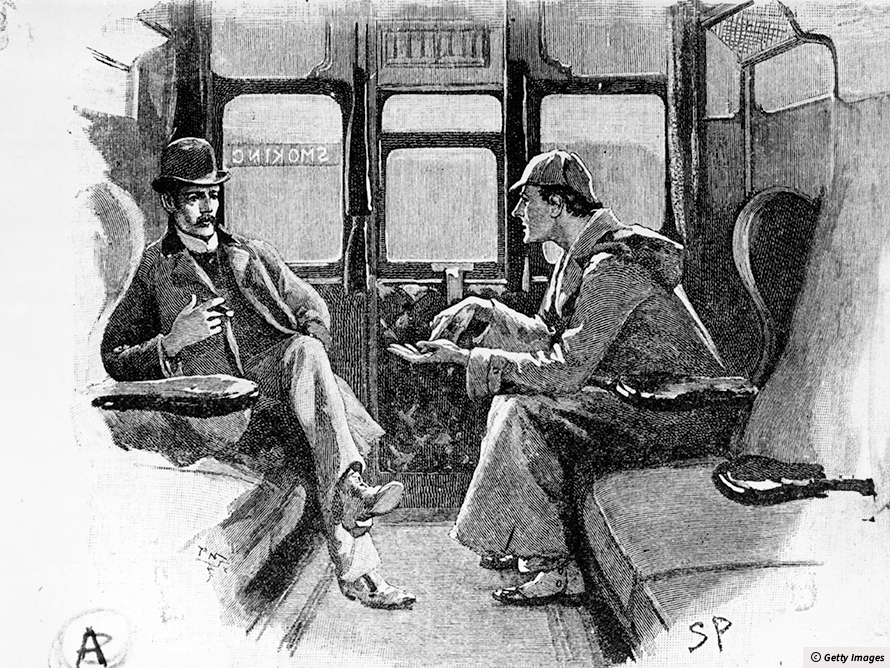Every year, Mary Morstan receives a pearl in the post from a stranger. She thinks that it has something to do with the disappearance of her father, ten years earlier. But in order to get to the truth, she will need the help of the world’s greatest detective, Sherlock Holmes. In the second of Arthur Conan Doyle’s Sherlock Holmes stories, published in 1890, and set two years earlier, Holmes and Watson test their methods on a strange case, involving a mysterious set of four symbols (“the sign of the four”), a hidden treasure stolen from India and then stolen again, and a murder that puzzles everyone. Published at the peak of Britain’s imperialRelating to an empire. power, when London was the centre of the world, the story reflects a fear that the wealth flowing into Britain was bringing danger with it.
The Sign of the Four

Glossary
Imperial - Relating to an empire.
Subjugated - Bring under control by defeating.
Victorian - The era when Queen Victoria was on the British throne, from 1837 to 1901.
Stereotypes - Stereotypes are ideas about how people will act, based on the group to which they belong.
Welted - Hit or strike something hard.
Plunder - Theft.
Deductive - Coming to conclusions through reasoning.
Dismal - Very bad.
